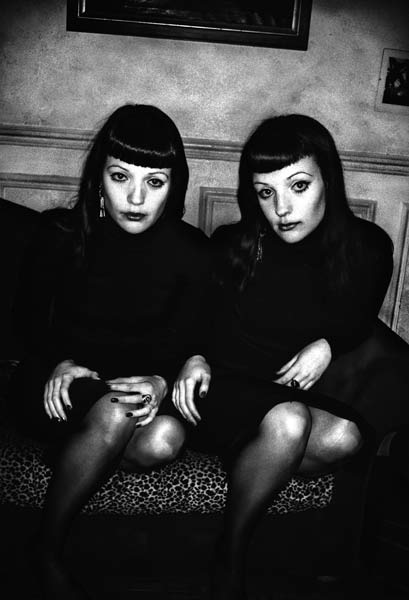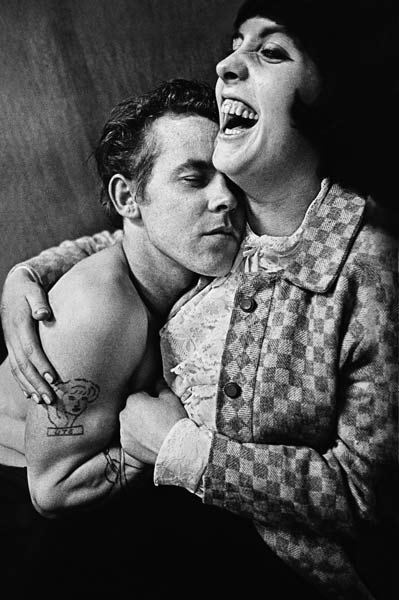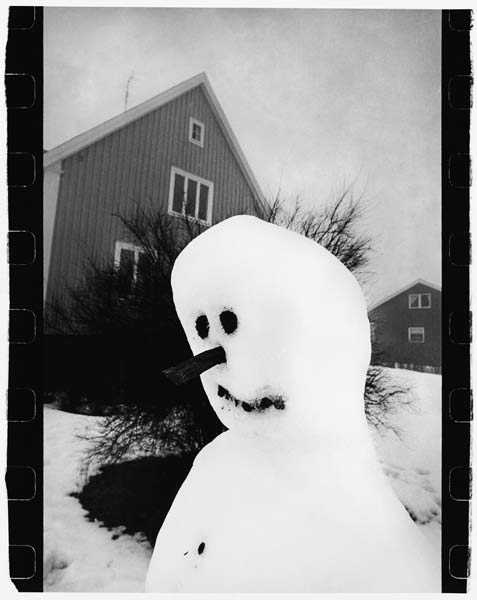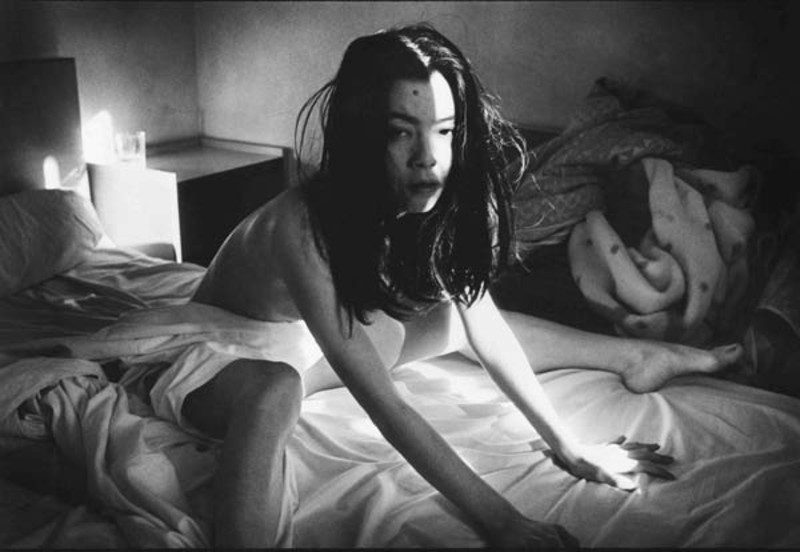MONACO DI BAVIERA. Il fotografo svedese Anders Petersen è uno dei fotografi più influenti della sua generazione. Dopo aver studiato con Strömholm alla scuola di fotografia di Stoccolma, tra il 1966 e il 1968, ha iniziato a lavorare come fotoreporter per giornali e riviste svedesi. Petersen è sempre stato particolarmente interessato alle persone ai margini della società e cerca i suoi soggetti in discoteche, carceri, istituti psichiatrici e case di cura, catturando l’isolamento sociale raccontandoli poi con scatti particolari rigorosamente in bianco e nero. Ed è con i ritratti di prostitute e gli ‘scarti sociali’, che spesso hanno ‘vissuto’ al ‘Café Lehmitz’, che Petersen ha trovato la fama; foto scattate alla fine degli anni Sessanta e che riflettono un senso di vita vissuta al di fuori delle norme sociali.

Come ha detto Petersen nel 2013, ‘Un ritratto non solo mostra l’altra persona ma dice anche molto su di te, è una sorta di autoritratto. Questo è interessante. Almeno per me’.
Petersen ha pubblicato circa 30 libri, che sono tutti in mostra a Monaco di Baviera. Ci sono circa 400 fotografie originali in mostra, provenienti da tutte le fasi del suo lavoro, così come proiezioni del documentario ‘Un film su di Anders Petersen’ (52 minuti), un film realizzato nel 2006 dal suo amico, il fotografo svedese JH Engström, in cooperazione con Petersen.
La mostra, al Muenchner Stadtmuseum, è stata organizzata in collaborazione con la Bibliothèque nationale de France, Fotografiska Museet di Stoccolma e Galerie Vu ‘di Parigi. Solo fino al 28 giugno.
MUNICH. Anders Petersen, a Swedish photographer born in 1944, is one of the most influential photographers of his generation. After studying under Christer Strömholm at Stockholm’s renowned School of Photography between 1966 and 1968, he began working as a photojournalist for Swedish newspapers and magazines. Since that time, he has been particularly interested in people on the fringe of society. Petersen seeks his subjects out in nightclubs, prisons, psychiatric institutions and nursing homes, capturing the socially isolated and the personal circumstances in compelling black and white visual essays.
Petersen found fame with his portraits of prostitutes, the homeless and other social rejects who took refuge and made their temporary home in Café Lehmitz, a dingy bar on Hamburg’s Reeperbahn. These photos were taken at the end of the Sixties and reflect a sense of lives lived outside of social norms, molded by an open approach to sexuality, love and violence. Shortly after his photos were exhibited at the International Photography Festival in Arles in 1977, Schirmer/Mosel in Munich brought out the ‘Café Lehmitz’ book of prints which went on to acquire cult status. Musician Tom Waits came across the book’s title page in 1985 and used it as the cover for his ‘Rain Dogs’ album.

There is an autobiographical element to the ‘Café Lehmitz’ photographs and indeed all Petersen’s subsequent projects from ‘City Diary’ to ‘To Belong’. As Petersen said in 2013, ‘A portrait does not only show the other person, it also tells you a lot about yourself, it’s a sort of a self-portrait. That is interesting – at least to me.’ Without understanding the photographer’s particular curiosity and ability to empathize with people and difficult situations, many pictures might appear impenetrable. ‘I look for a relationship with the people I photograph, and this is about longings, dreams, secrets. Perhaps also about nightmares and fears.’
Many images radiate a restless vital energy. Petersen’s photos with their edgy black-white aesthetic, the visual language of a marginalized existence, take him artistically close to the work of Dutchman Ed van der Elsken, Japanese Daido Moriyama and Frenchman Antoine d’Agata. Just like Petersen these photographers were not afraid to take risks and reach out and explore the personal boundaries of experience. Besides the searing insights they offer into raw reality, many also share a lyrical and often melancholic air. The Swedish photographer sees himself as a narrator of stories that seek to reveal other sides of human existence, ones that are frequently hidden or suppressed. More than almost any other photographer, Petersen is driven by this interest in the fundamental questions in life, and he brings a deeply humanistic attitude to documenting human behavior. ‘For me, the photographic instant is also about intimacy with myself. To approach the experience of reality and do more than just describe it. And to try to be present in the experience. At times it’s sweet; sometimes I pick up my camera and life jumps into it, like rabbits. Everything is in play.’

In recent years, Petersen has presented his photographs in the form of diaries which share the private lives of other people, document their highs and lows, express aggression and desire. They chronicle the photographer’s daily encounters, sometimes directly and mercilessly, but never without empathy.
Petersen has published some 30 books, all of which are on display in the exhibition. There are some 400 original photographs on show, from all phases of his work, as well as screenings of the documentary ‘A film about with Anders Petersen’ (52 minutes), a film made in 2006 by his friend, Swedish photographer JH Engström, in cooperation with Petersen.
The exhibition has been organized in cooperation with the Bibliothèque nationale de France, Fotografiska Museet in Stockholm and Galerie Vu’ in Paris. Only until 28th June.





